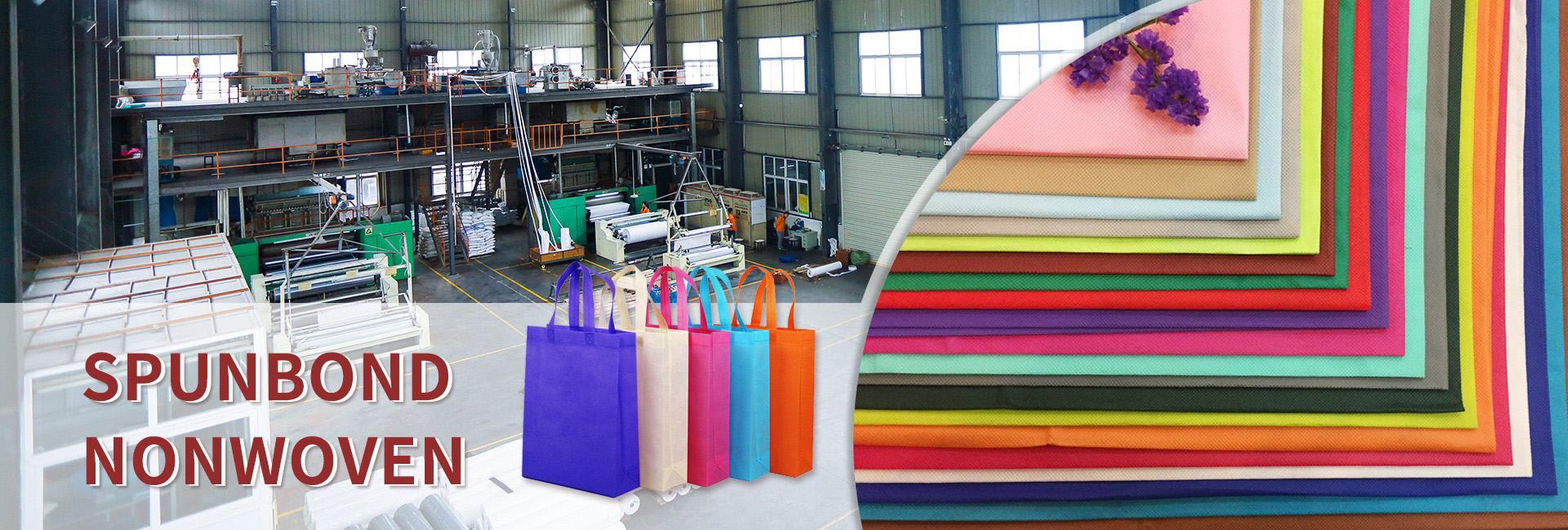Abstract
This article compares the application of woven grass proof fabric and non-woven fabric in the agricultural planting industry. Weaving weed proof cloth can prevent weed growth, improve soil quality, allow for air and water permeability, maintain humidity, simplify agricultural production processes, and enhance crop quality. Non woven fabric has the advantages of softness, breathability, and drainage, and has a wide range of applications. It can be processed into various specifications and shapes. The choice of material should consider the specific usage environment and purpose.
In recent years, woven grass proof fabrics and non-woven fabrics have been widely used in the agricultural planting industry. However, many people face some difficult choices when choosing to weave grass proof fabric and non-woven fabric. This article will explore the characteristics and scope of application of woven grass proof fabric and non-woven fabric, and analyze their advantages and disadvantages to help you better understand the selection of the two materials.
Weaving grass proof fabric
Woven weed proof cloth is a type of ground cloth made of materials such as polyethylene and polypropylene, which has the function of preventing weed growth. Its main advantage is that it can effectively prevent weed growth, while also having good permeability and breathability. In addition, woven grass proof fabric also has the following advantages:
1. Effectively control weeds
The main function of weed proof cloth is to prevent the growth of weeds. By covering the soil surface with anti weed cloth, it can prevent sunlight from shining on the soil, thereby inhibiting the growth of weeds. Meanwhile, weed proof cloth can also prevent weed seeds from spreading through the soil, effectively controlling the number of weeds.
2. Improve soil quality
Grass proof cloth can effectively reduce the consumption of nutrients by weeds in the soil, thereby ensuring the nutrients needed for crop growth. In addition, grass proof cloth can also prevent the evaporation of soil moisture, improve soil moisture and water retention capacity, which is beneficial for the growth of crops.
3. Maintain soil moisture
Grass proof cloth can reduce the evaporation of soil moisture, thereby effectively maintaining soil moisture. This is very beneficial for crop growth, especially during dry seasons, as it can provide sufficient water for crops.
4. Simplify the agricultural production process
Using weed proof cloth can reduce the workload of farmers and avoid frequent weeding operations. The use of grass proof cloth can make agricultural production simpler, more convenient, and efficient, while reducing agricultural production costs.
5. Improve crop quality
Due to its ability to reduce competition from weeds and ensure the necessary nutrients and water for crop growth, weed proof cloth can improve the quality of crops. For example, in fruit cultivation, weed proof cloth can reduce the pollution of weeds on fruits, improve the quality and appearance of fruits.
6. Save time and effort
The use of weed proof cloth can effectively reduce the workload of manual weeding, thereby saving time and manpower. This is particularly important for large-scale planting areas.
Non woven fabric
Non woven fabric is a lightweight material made of polyester and other materials, which has the advantages of softness, breathability, and drainage. Its main advantages are light weight, easy processing, and wide applicability. In addition, non-woven fabrics also have the following advantages:
1. It can be used for various purposes such as insulation, waterproofing, sound insulation, etc.
2. It can be processed into various specifications and shapes to meet the needs of different users.
3. It can be used in combination with various materials to improve its effectiveness and functionality.
However, non-woven fabrics also have some drawbacks:
1. Non woven fabrics have relatively poor strength and durability, and are prone to damage and aging.
If not processed or used properly, non-woven fabrics may experience wrinkles, shrinkage, and other issues.
Scope of application
Both woven and non-woven weed proof fabrics have similar applicability and can be used in the agricultural planting industry to prevent weed growth, protect plant roots, and improve plant growth efficiency.
Conclusion
In summary, woven grass proof fabric and non-woven fabric have their own characteristics and advantages in use. Choosing which material to use requires consideration of multiple factors such as the specific usage environment and purpose, as well as the performance and quality of the material. If you need to prevent weed growth and protect plant roots, you can choose to use woven weed proof cloth; If you need a lightweight, soft, breathable, and well draining material, you can choose to use non-woven fabric. During use, it is necessary to pay attention to maintenance and upkeep to ensure the service life and effectiveness of the materials.
Dongguan Liansheng Non woven Technology Co., Ltd. was established in May 2020. It is a large-scale non-woven fabric production enterprise integrating research and development, production, and sales. It can produce various colors of PP spunbond non-woven fabrics with a width of less than 3.2 meters from 9 grams to 300 grams.
Post time: Sep-21-2024

